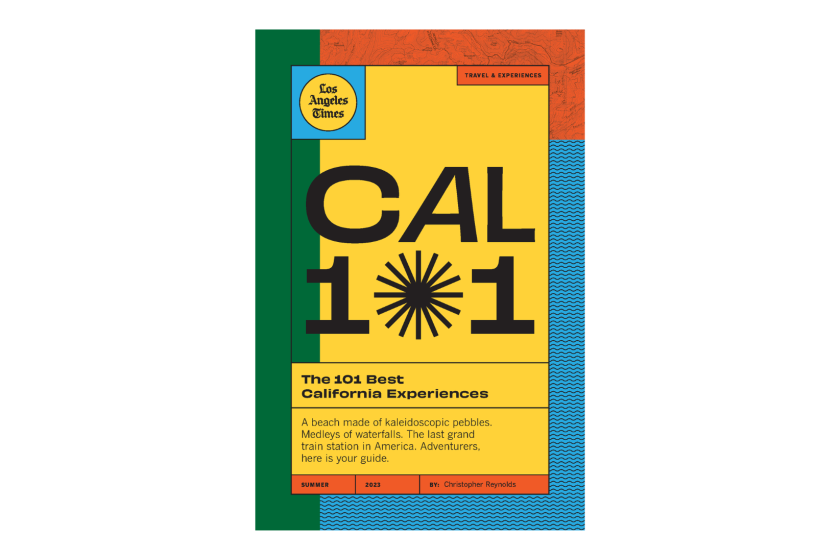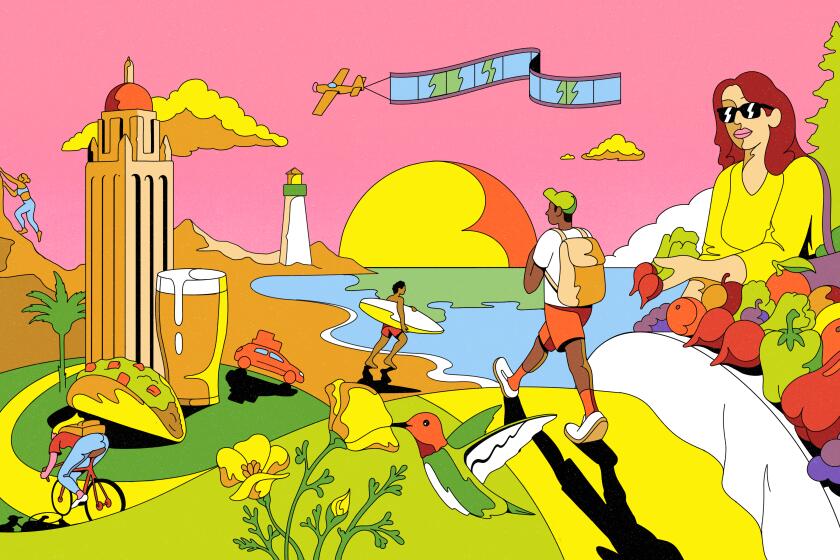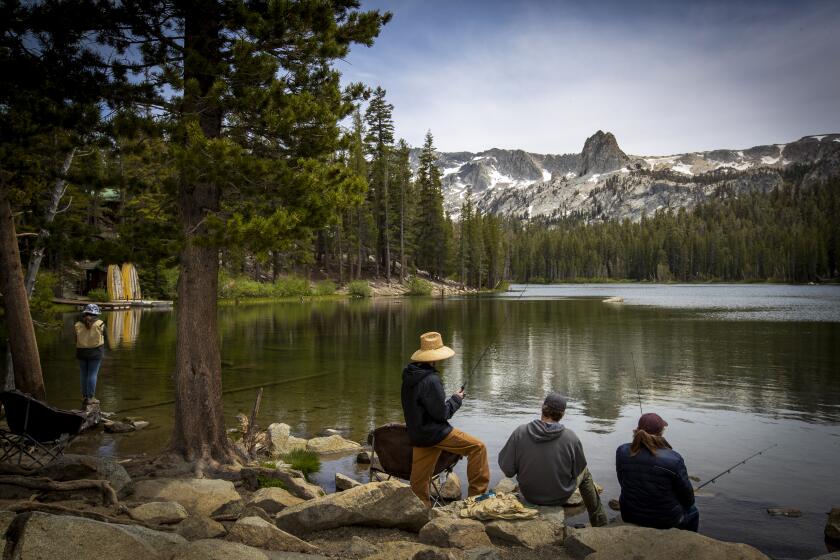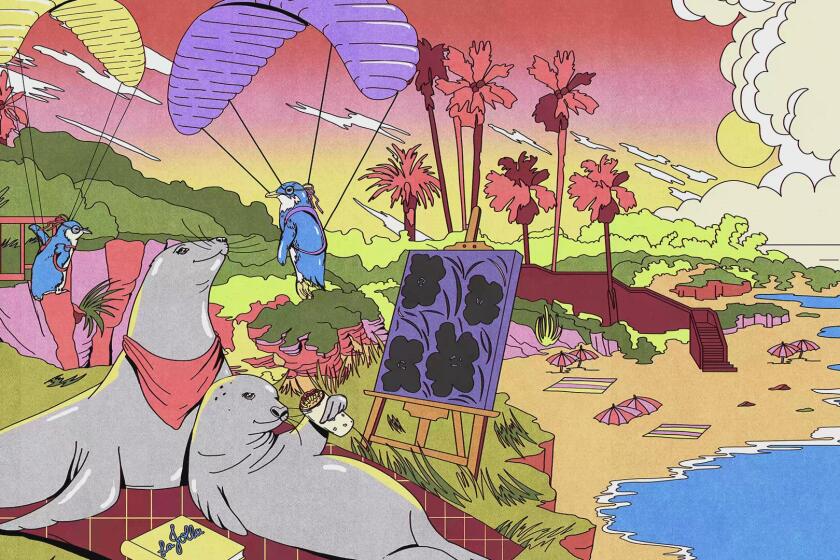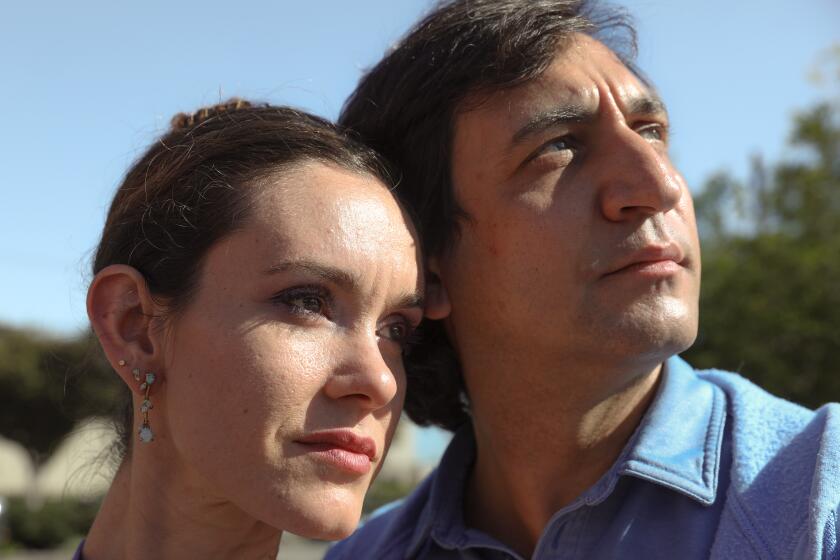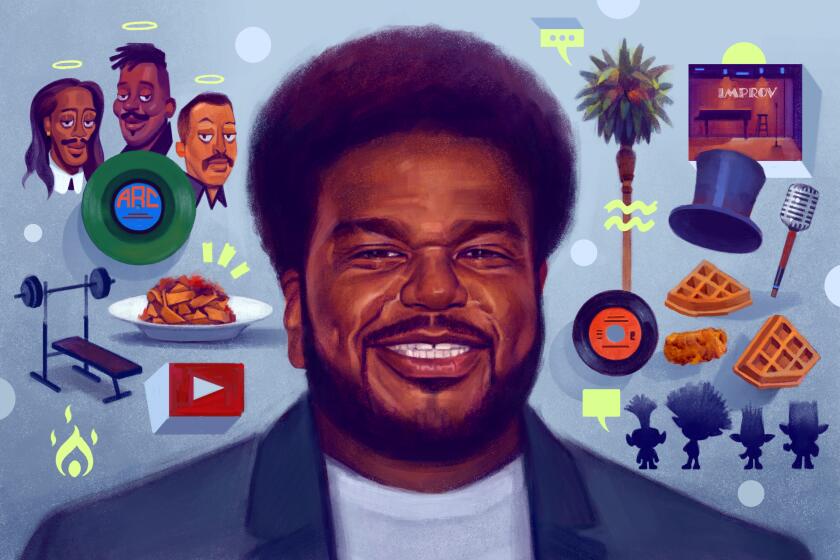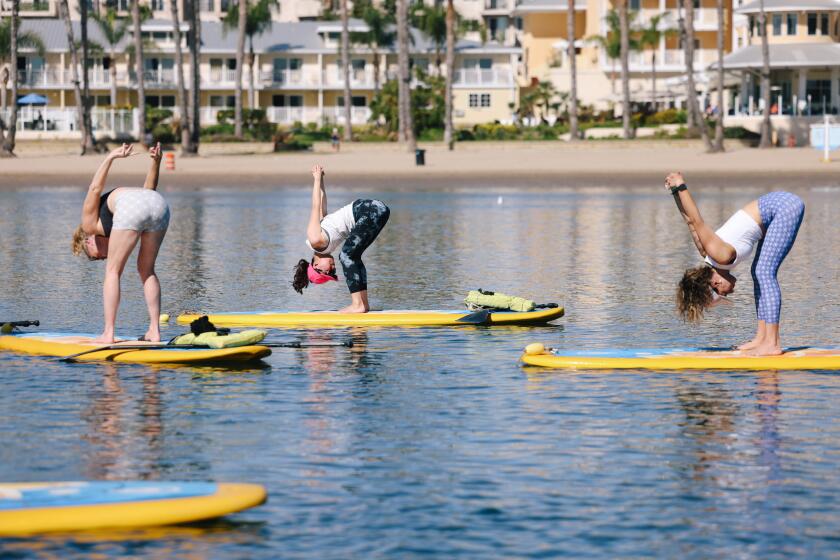The Los Angeles Times; Storyblocks
My big California 101 list is alphabetical, but within that sprawling group of favorites, I have a tighter group of greater favorites — my own top 10, shaped by desert dawns, summer surf and the tang of tri-tip on a slow Thursday night. (Have I given one away?)
These are places I find myself recommending to newcomers, places where I always linger as long as possible.
In California and beyond, the adventure of leaving home is about the attitude you bring, the weather you get and, most of all, the people you meet. It is, as Mr. Wells used to say in 11th-grade algebra, a multivariable equation. Your results will vary.
That said, here are my California top 10.

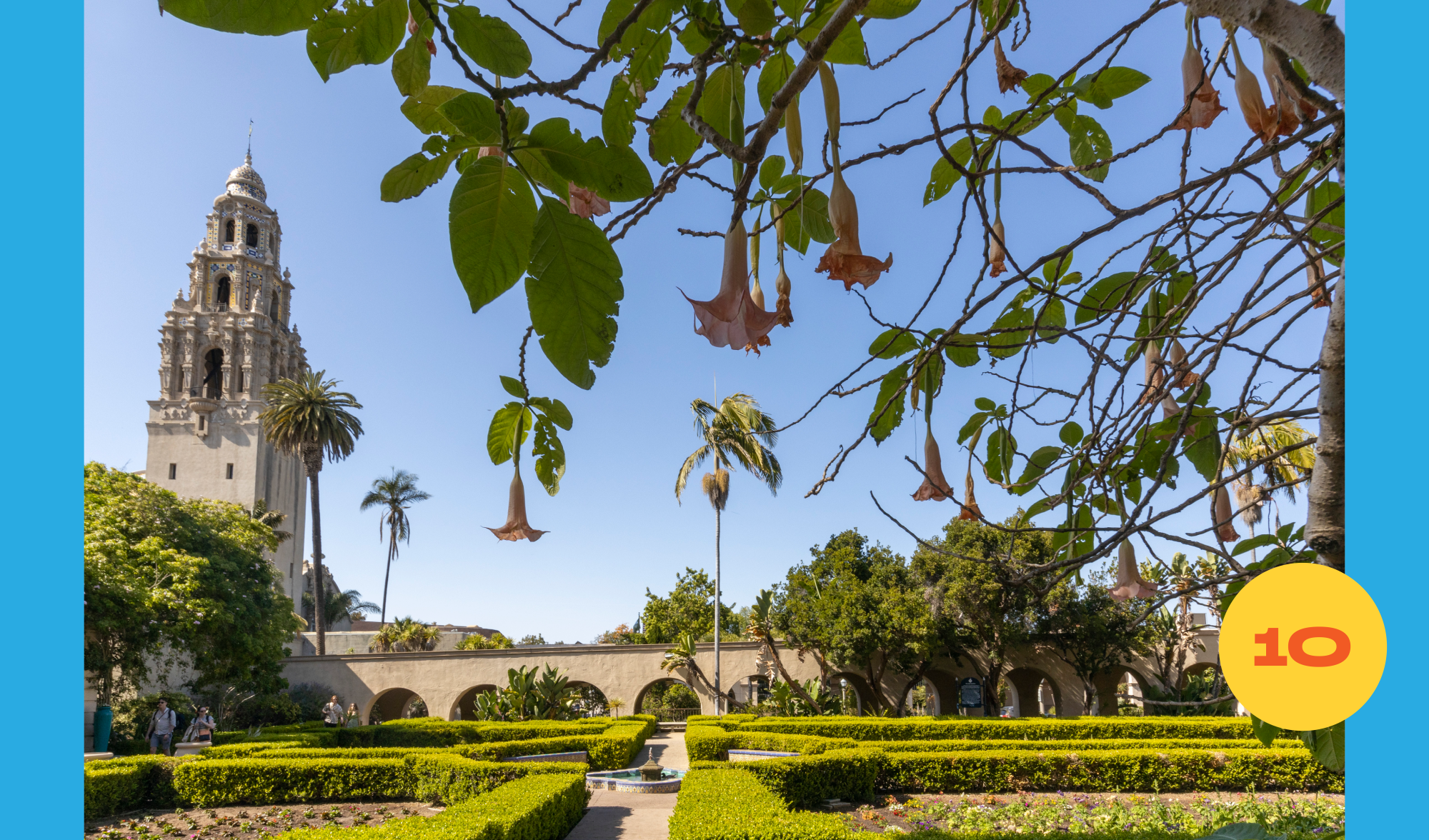
10. Balboa Park, San Diego
I had a summer job in this park when I was a teenager. Besides the zoo, the Old Globe theaters, the art, history and science museums and the big pond by the botanical building — which is enough to keep you going for days — the park has a desert garden, a cactus garden, a canyon with 58 species of palm trees, a model railroad museum and a puppet theater. If you include the park’s Morley Field Sports Complex on the east side of Florida Drive (which most tourists overlook), it’s got a dog park, tennis club, disc golf course, archery range, velodrome and swimming pool. Not that it’s perfect: As in cities across the U.S., Balboa Park’s keepers and neighbors are debating how to respond to homelessness. But in the big picture, this is a place that will lower your blood pressure, not raise it.

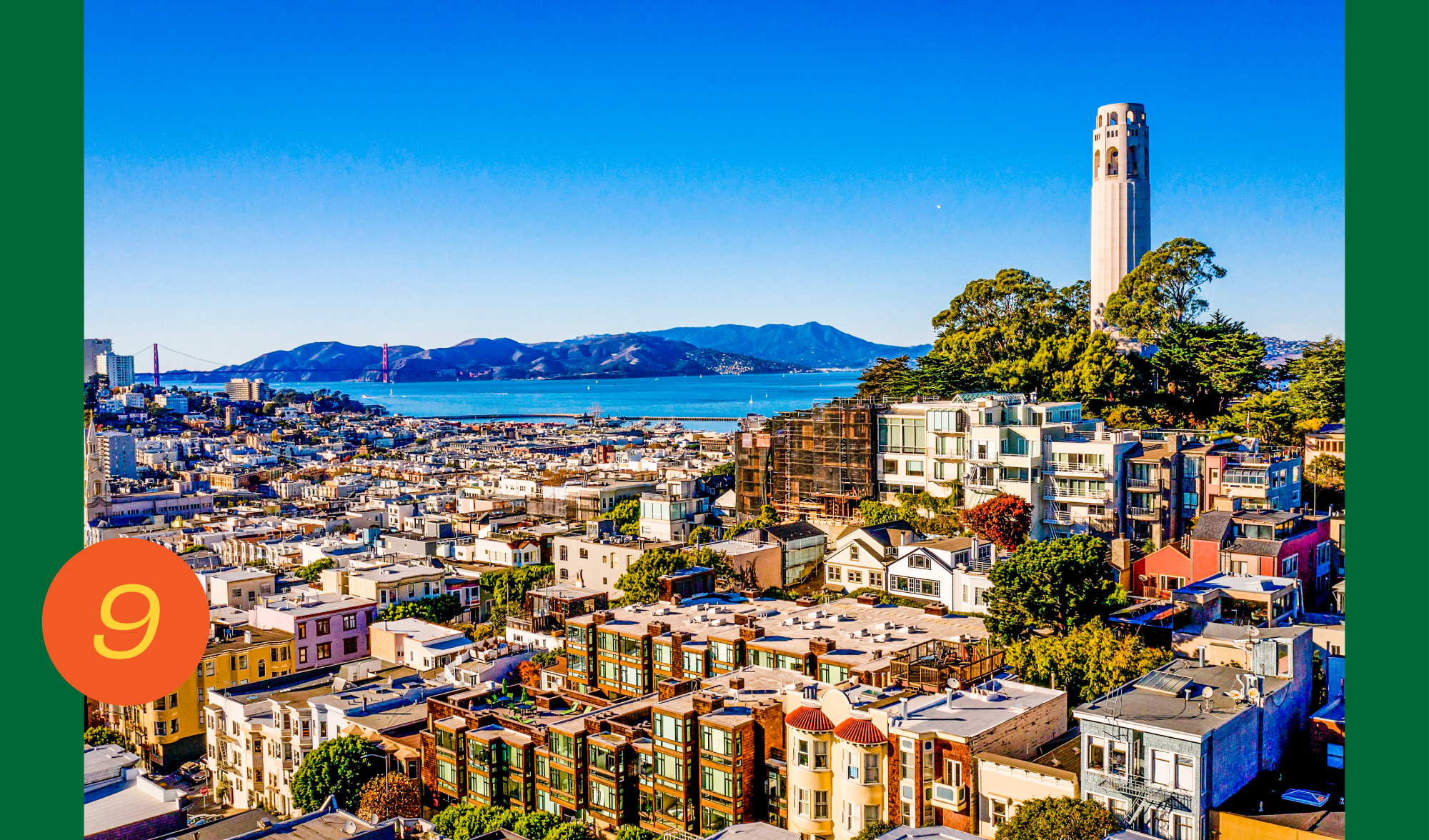
9. North Beach, San Francisco
San Francisco is in a slump, especially the ghostly Financial District. But if it survived 1906, it can survive this. And North Beach remains irresistible. I go to City Lights Books first (which is illogical, because then I end up carrying around my new books all day). For lunch, I might get a big, messy sandwich at Molinari Delicatessen (since 1896) and eat it on a bench in Washington Square. If it’s a sunny day, maybe I’ll go up Coit Tower and check the wrap-around view. When it’s time to sleep, I like Hotel Bohème’s style and it’s right on Columbus Avenue. But I also want to sustain the San Remo Hotel, a European-style budget pensione that has rooms as affordable as $111, if you don’t mind sharing a bathroom down the hall. Some day, I’ll book a night in the San Remo’s penthouse, a quirky, upstairs hideaway with a private bath, city views and a rate of $209, sometimes less.

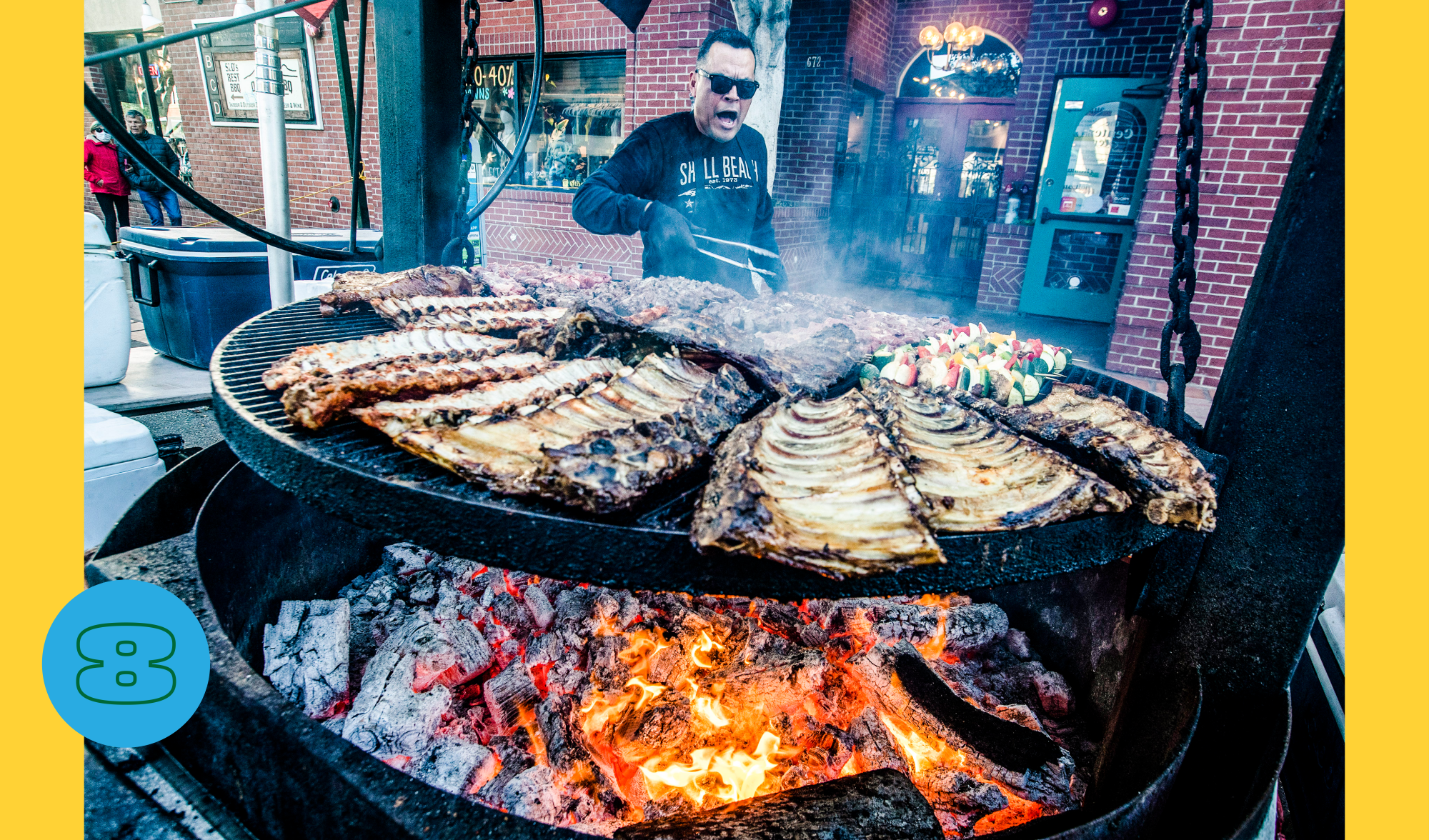
8. Downtown SLO Farmers’ Market, San Luis Obispo
Decades before pandemic-afflicted cities decided to try shooing cars off their downtown streets and and letting pedestrians take over, SLO was doing it. This market turns Higuera Street, San Luis Obispo’s main drag, into a big party — a remarkably well-mannered, family-friendly one, given the number of college students working and playing at the market. Maybe the scent of all that barbecuing keeps them docile. Anyway, I’ll take Thursday night in SLO over Saturday night in most other places.
Whether or not you’ll be hugging a young scholar goodbye this fall, these communities are worthy of a visit.

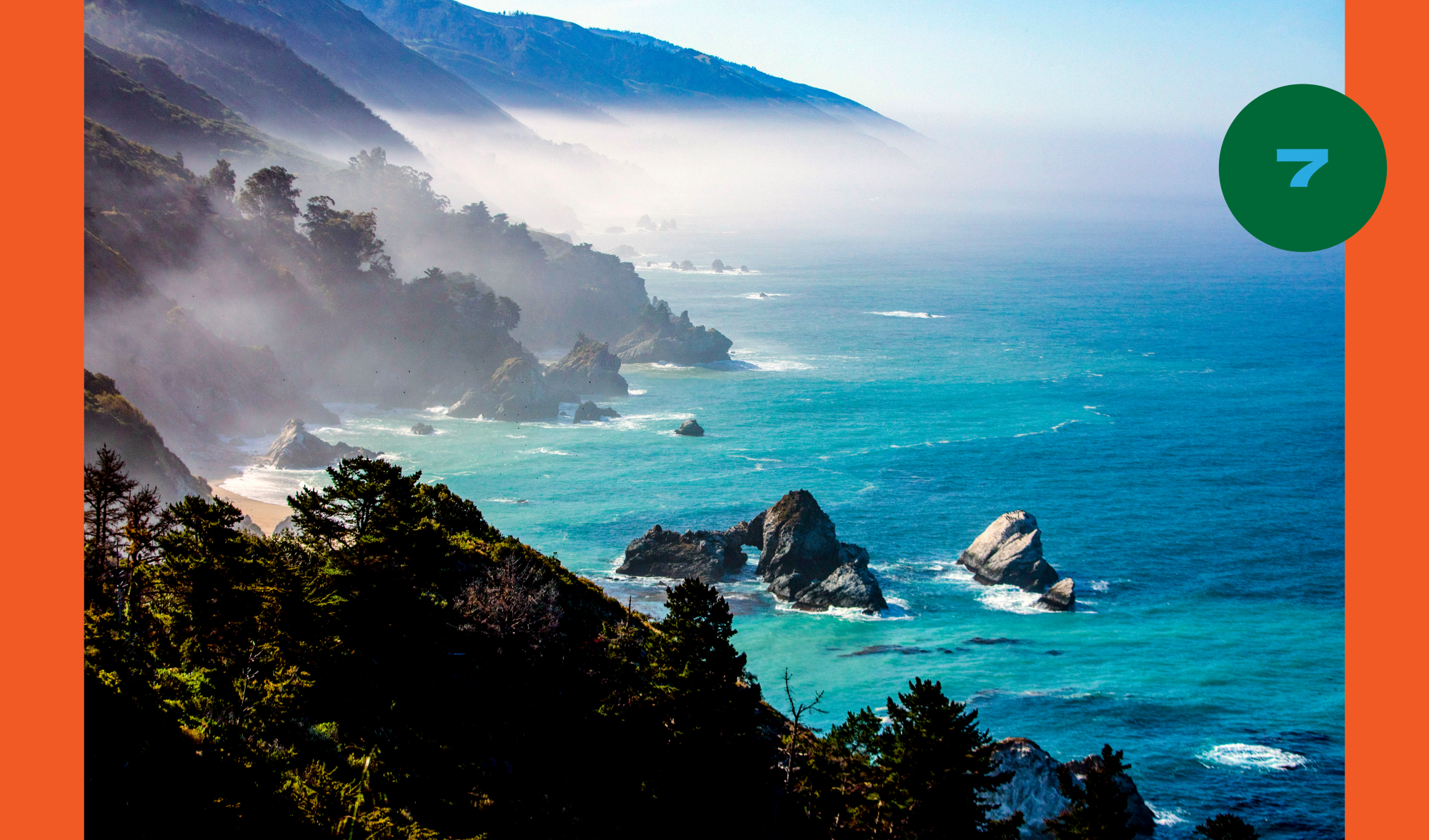
7. Nepenthe, Big Sur
I’ve probably stopped here 15 times or more over the years — if not for lunch or dinner at Nepenthe, then for breakfast at Cafe Kevah or a look at the art, books, clothes and trinkets in the Phoenix shop. The food and views are good, of course, and the inventory is always interesting. But the real reason I come, I think, is the sensation that everyone around me is exactly where they want to be. We need more places like that.

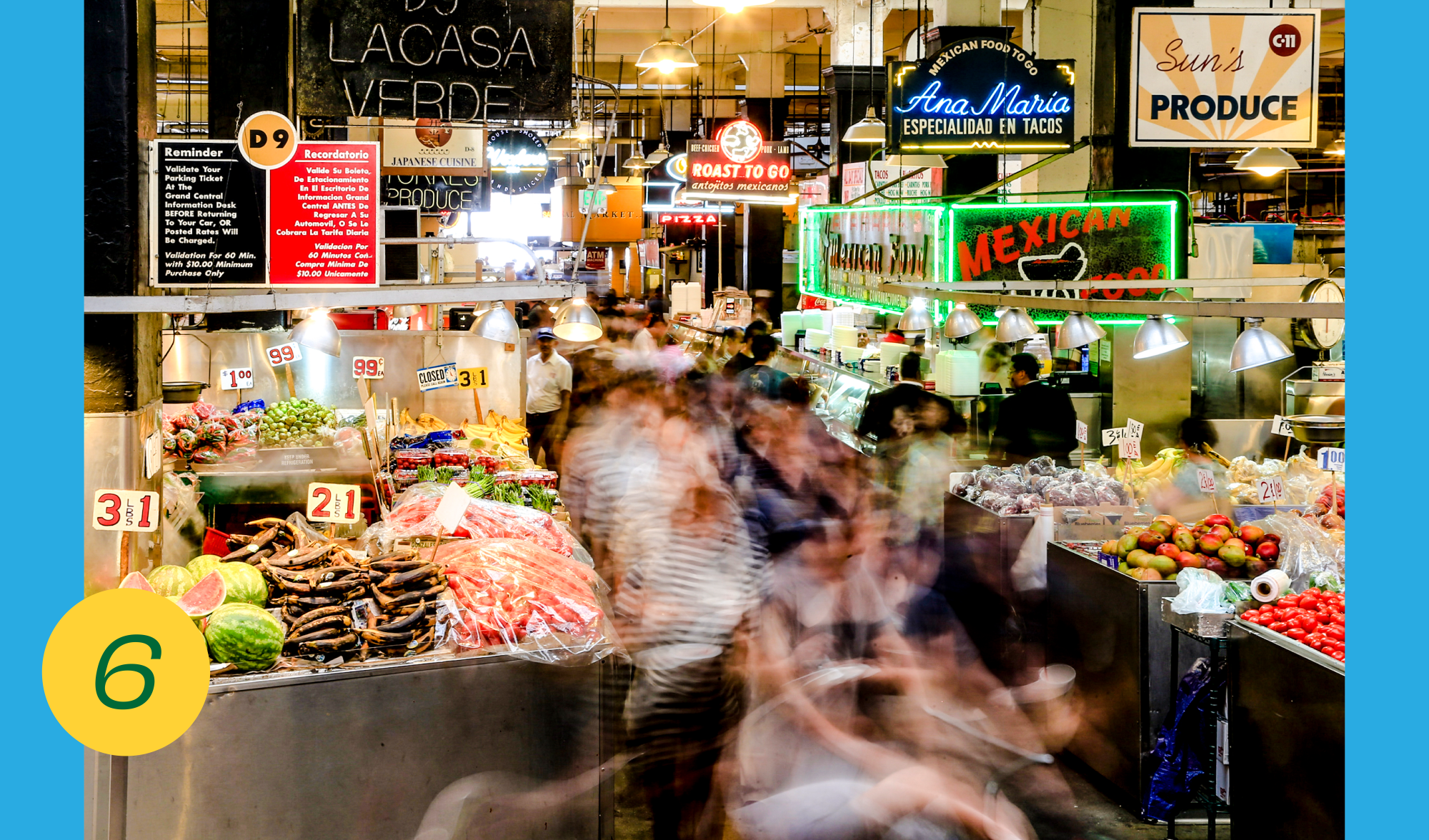
6. Grand Central Market, DTLA
When I tried to have lunch here a few Saturdays ago, the market was so alive that there was no place to sit. We wound up at Maccheroni Republic across the street. Still, we made sure to browse through the market, basking in the smells, the languages and the riot of competing neon signage. Maybe DTLA has lost some liveliness since the pandemic arrived, but stand in the middle of this food hall any day at lunchtime and you’ll feel the multicultural bearhug of an honest-to-God big city. (Come before noon and you’ll have a better chance at scoring a table.) You’ll also have a chance to peek at the “Blade Runner” atrium of the Bradbury Building down the street, or catch a $1 ride up Bunker Hill on the Angel’s Flight Railway.

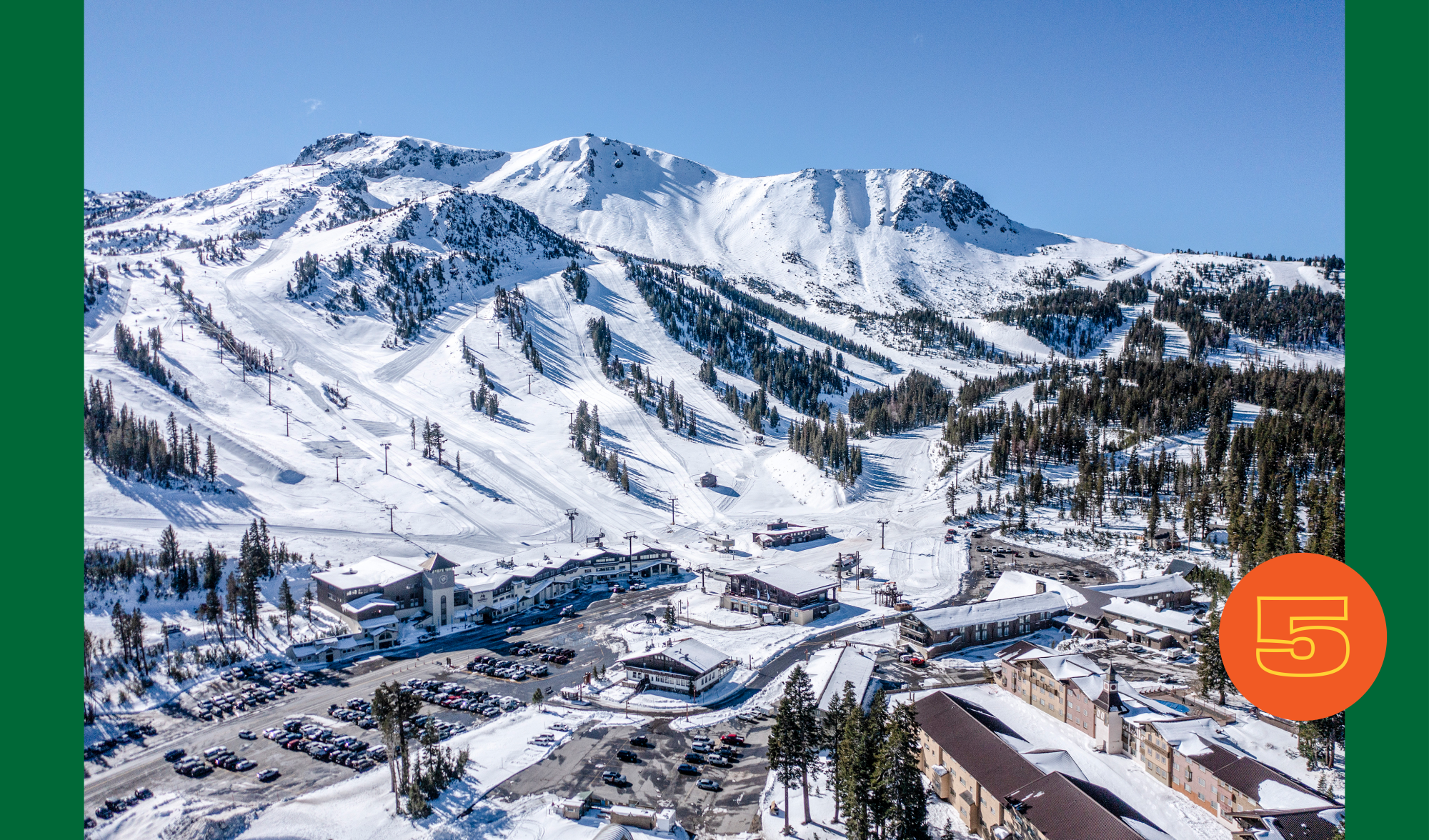
5. Mammoth Mountain
I have mixed feelings about this one. I know thousands of skiers and boarders are grateful that their season will last through July (there’s a lot of snow on that 11,053-foot mountain), but I like this territory more in summer. When it’s warm, Mammoth Lakes are a haven for hiking and fishing. The Red’s Meadow valley is great for hiking or horseback riding. And last summer, once I’d entered Devils Postpile National Monument and followed the trail down to the base of 101-foot-high Rainbow Falls for the first time, I did not want to leave. (As for the many-sided stone formations that give Devils Postpile its name? Meh. They’re OK.)
Thousands of L.A. families are making their way to Mammoth Lakes and surrounding areas for hiking, biking and birding adventures.

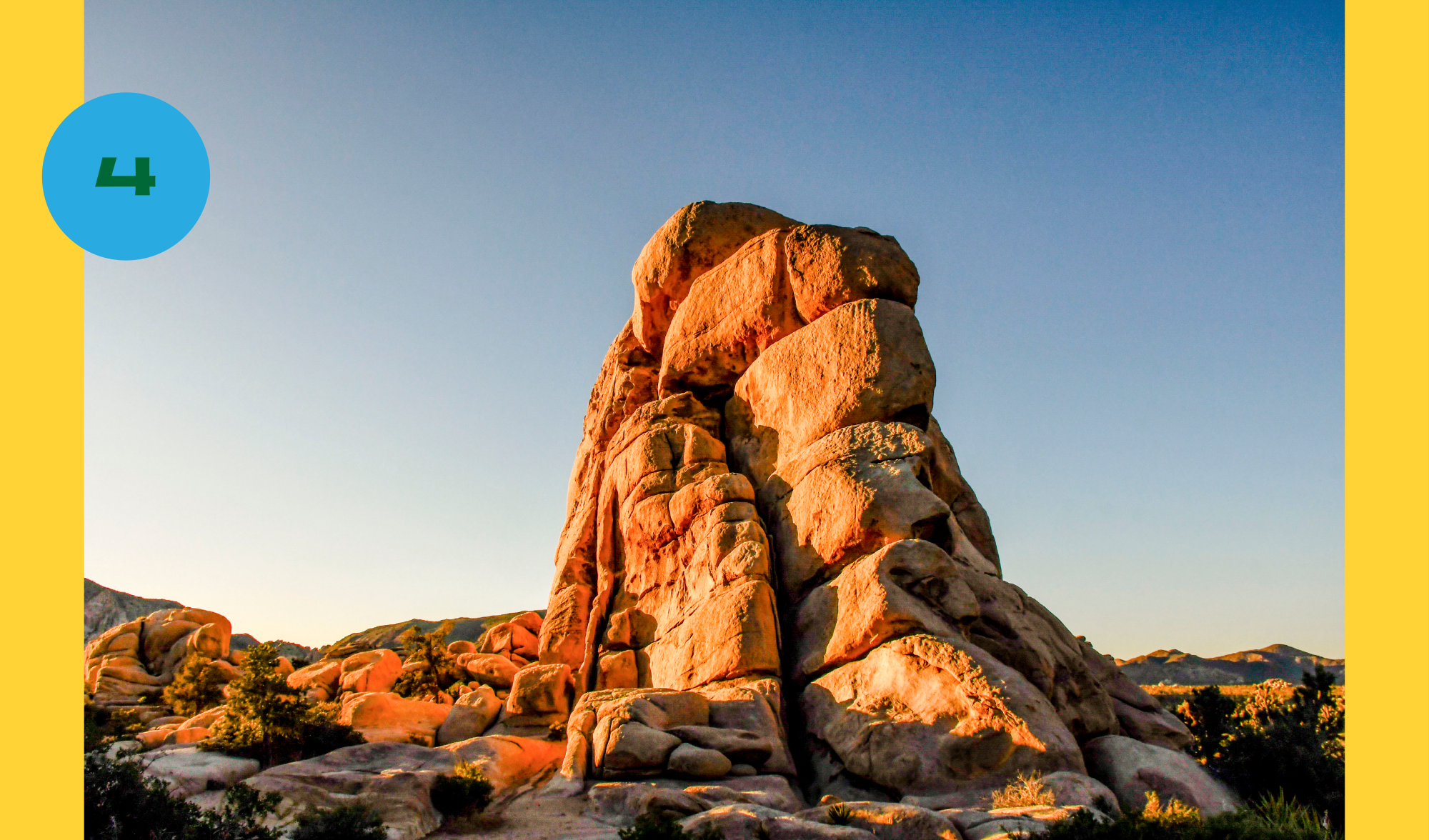
4. Hidden Valley, Joshua Tree National Park
I remember driving out to Hidden Valley when Joshua Tree first reopened after its pandemic closure. It was late May 2020. There was such a rush of climbers, hikers, campers and desert rats that the valley’s 44 campsites were grabbed up in no time. I was lucky enough to nab one, so I had the pleasure of watching the boulders’ golden glow as the sun sunk low. Then came the more muted glow of campfires being sparked. That end-of-day sequence is always mesmerizing but it was doubly powerful because we’d been kept away and the rest of the world had gone sideways. Now I suppose J-Tree is one of those places that will always remind me of the pandemic.

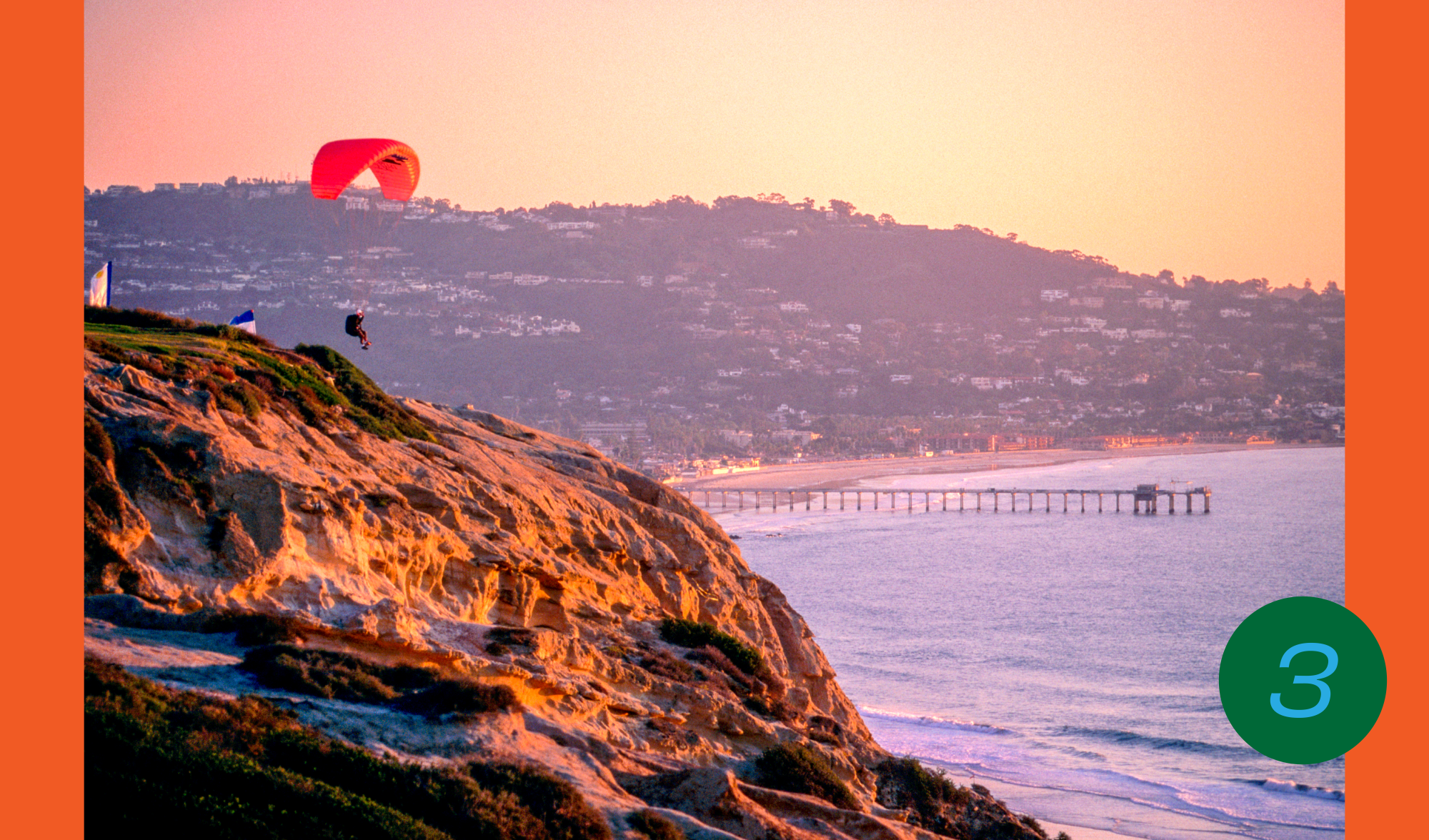
3. Torrey Pines Gliderport, La Jolla
I’m a hopeless sucker for this place. I’ve probably stopped here a dozen times or more to see the paragliders and hang-glider people run across the grass and jump into the updrafts from the top of a 300-foot cliff. And of course once you’re on the scene, you might as well have a sandwich at the café. Or pick your way down the slope to Black’s Beach. Or stroll over to admire the severe architecture of the Salk Institute for Biological Studies next door.
Tide pools, Windansea Beach, Museum of Contemporary Art San Diego, La Jolla Cove, the Taco Stand. There’s plenty to do, see and eat on a weekend trip to La Jolla.

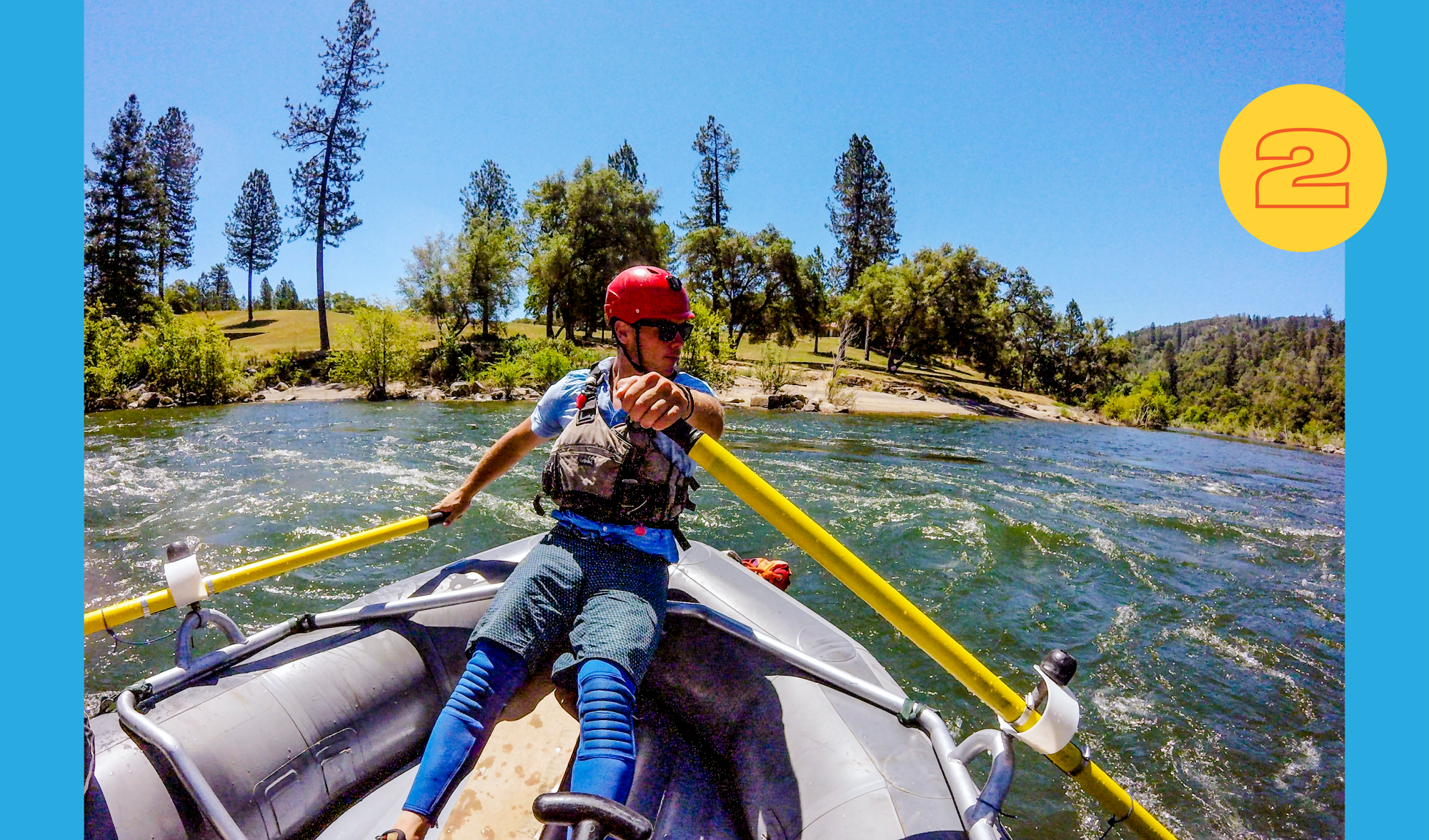
2. American River by raft, El Dorado County
The American River’s South Fork, the state’s most popular rafting river, is in rare form this year, and probably will be carrying rafters into the fall. About 20 rafting outfitters offer South Fork journeys of up to 21 miles through a series of Class III rapids from Chili Bar to Folsom Lake. Because the river is dam-controlled, its flows are less extreme than many other waterways. (The American River’s Middle Fork and North Fork are more challenging.) This year, more than ever, it makes sense to do this trip with a trained guide. At All-Outdoors California Whitewater Rafting, which runs trips on 10 rivers in the state, owner Scott Armstrong notes that families with young children or hesitant paddlers can choose to wait until mid-July or later, when the water will be calmer.

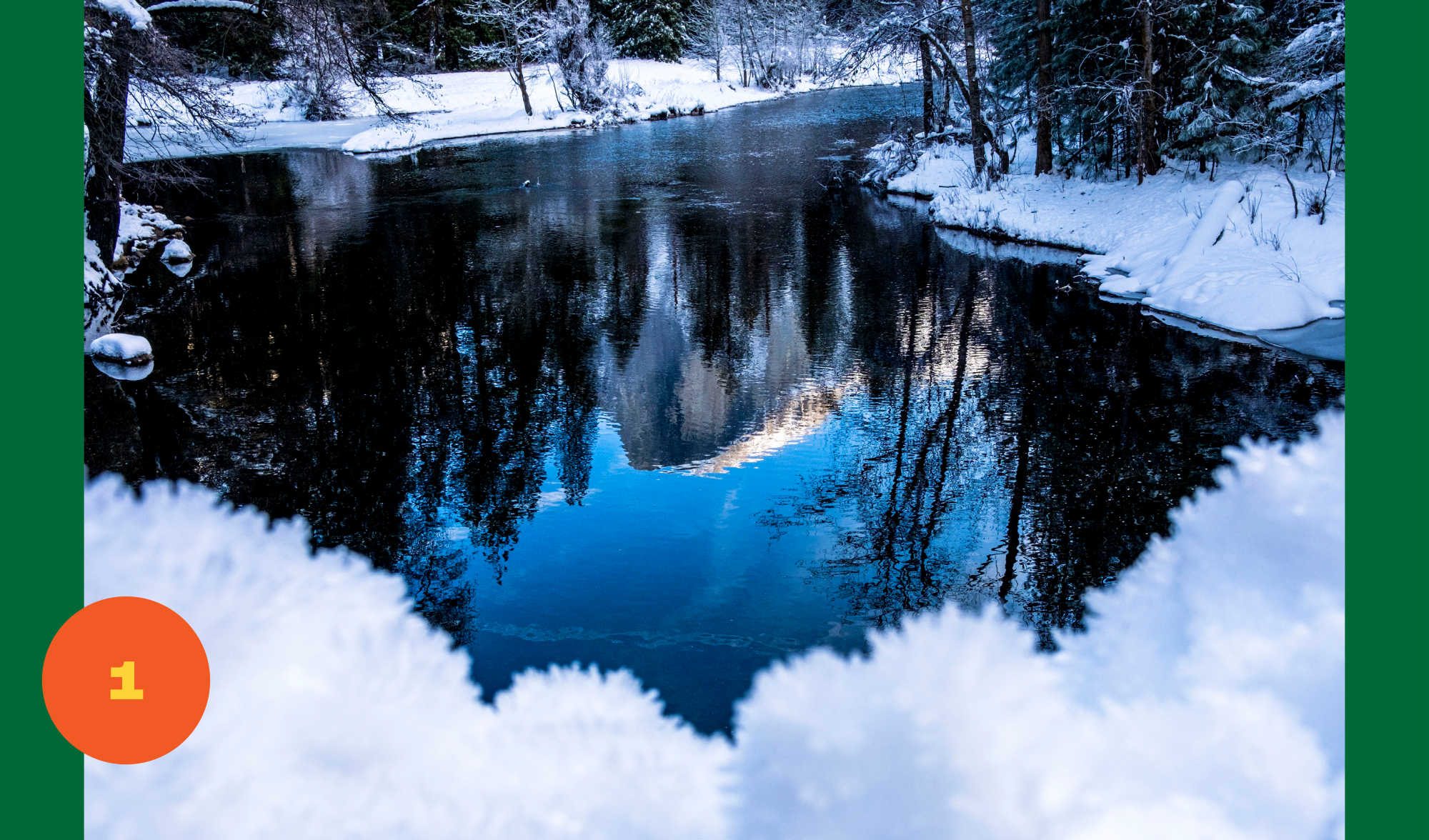
1. Yosemite Valley, Yosemite National Park
Which wonder of the world sounds like a broken faucet? This one, especially now. As May began, more than a dozen falls were coursing from the Sierra into Yosemite Valley, carrying runoff from the snowiest winter in recorded history. The valley was already my favorite portion of my favorite California national park, thanks to Yosemite Falls, Vernal Falls, the Merced River and the great stone face of El Capitan. With this year’s waterworks, the vistas are doubly staggering.
But with those rewards come challenges for rangers and visitors. After a brief, partial April closure over flood worries, all that running water remains a risk, and some road and campground closures remained in place as of May 16. Also, for the first time in four years, there’s no reservation requirement for day-trippers to the park this summer, so traffic and parking could be rough. If you can’t get to the valley on a weekday, consider waiting until later in the summer, when snowplows have cleared and opened Tioga Road (the park’s eastern gateway) and Glacier Point Road (which connects the valley to Glacier Point and Half Dome views). Once those roads are open — which might not be until July or August this year — you’ll have more options, and traffic circulation in the valley is likely to ease greatly.
No matter when you arrive, the recipe for success is pretty simple. Leave your car behind. Leave the blacktop behind. Feel the dirt underfoot. Lean against a tree. Listen for running water and look for sun glinting off granite. Just like that, the world is simpler and better.
It's a date
Get our L.A. Goes Out newsletter, with the week's best events, to help you explore and experience our city.
You may occasionally receive promotional content from the Los Angeles Times.


